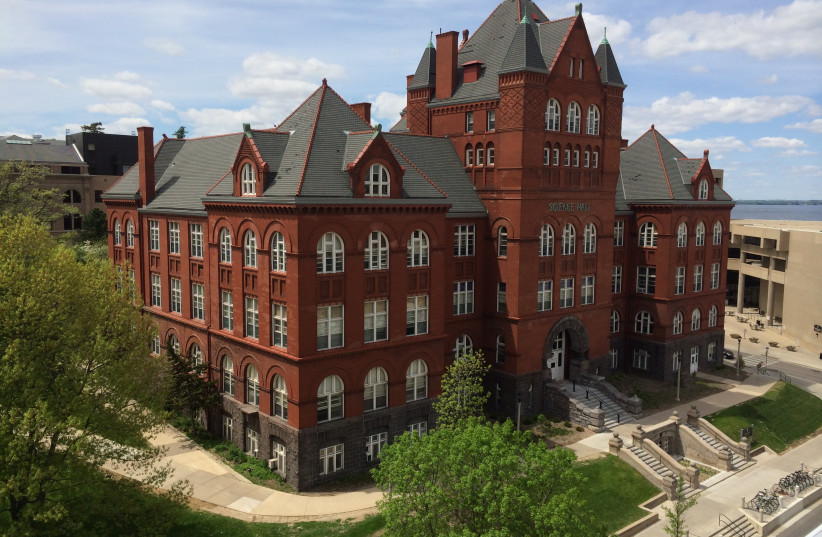Earlier this month, a slew of antisemitic graffiti popped up around the campus of the University of Wisconsin-Madison. Jewish students were accused of having “blood on their hands” and various antisemitic tropes. These events feel like regular occurrences on US college campuses, but UW-Madison had a notably egregious response. The university’s official statement called for “vigorous, honest debate” on campus, implying there is legitimate discourse surrounding Jewish student blood libel.
UW-Madison has one of the largest Jewish student populations in the US; meanwhile, they have sat ideally by as antisemitism has become a yearly staple of their student experience. These issues lay with the movement to separate Zionism and Judaism, the allowance of blatant antisemitism, and the refusal to demand that our safety no longer be a point of debate.
During my time as an undergraduate at Arizona State University, after years of antisemitic attacks, we forced the student government to allow the creation of a Jewish Cultural Coalition. We would then spend the next year debating with student government officials on who was allowed to be in our coalition.
We were regularly told that the AIPAC-trained club, SunPAC, and Students Supporting Israel did not meet the grounds for a Jewish student coalition. We were warned that their inclusion might conflict with other student coalitions, threatening its acceptance into the broader governing body.
When this was brought to the attention of ASU, the discussion shifted to the JCC being a standalone creation, completely caving to other groups who had the nerve to tell Jews who truly represent Jewish students. Our goal was to drag a chair to the table; in the end, we were essentially told it would be better for everyone if we had our own table and not upset the other guests.

I reflect on those moments with regret. We should have never humored discussions that boiled down to how to be good Jews, not to ruffle feathers, as we demanded nothing more than the same safety as any other student.
No other community is asked to explain themselves in the actions of self-defense. When Israel is assaulted by Hezbollah, Hamas, or those who wish to see it wiped from the Earth, there is always a mention of “proportion response.” Proportional response is code for not enough dead Jews.
Antisemitism normalized
JEWS EVERYWHERE must shift the Overton window regarding Israel and antisemitism. Too often, Jews mention ways to fall in line, suggesting that if we only were less Zionist or were willing to concede more points, maybe the antisemitism would decrease. The reality is that there is no such thing as a good Jew to those who want us gone.
This is a lesson we have learned too many times. Theodor Herzl noted, “The Jewish question exists wherever the Jews live.” I am tired of my fellow Zionists approaching the topic from a place of defensiveness; there should be only pride in standing alongside the Jewish state.
These waves of antisemitism come when Zionism has gained new standing on the world stage. With the second anniversary of the Abraham Accords, we all should be reminded of how remarkable it is to see Arab states in the region finally announce that Israel is not going anywhere. We must have the courage to stand up and start all conversations from that place of strength.
During my visit to Yad Vashem several years ago, I had a realization that redefined my connection to my Jewish identity. I was in a museum dedicated to those who could have never fathomed where I was standing. I pondered what it would have meant to those souls, sent to slaughter for the crime of being born, to know that Israel, the Jewish state, ceased to be only a dream.
I am a proud Jewish Zionist, and I refuse to compromise on that. To institutions that believe that antisemitism and anti-Zionism, which are the same thing, have grounds for debate, you picked the wrong era. There are only two sides to this discussion: those who promote the safety of the Jewish people and those who oppose it.
The writer is engagement chair for the Young Republicans National Federation, and is pursuing an MA in public policy (environmental policy) at Arizona State University.
